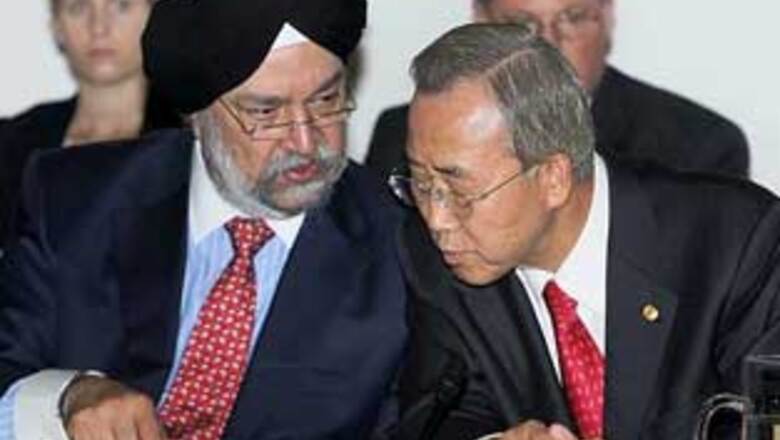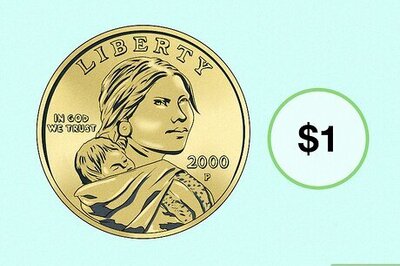
views
New Delhi: While the United Nations Security Council (UNSC) passed a resolution calling for universal adherence to non-proliferation treaty, India has reiterated it will not join the pact, which it terms discriminatory, as a non-nuclear weapon state.
The UNSC on Thursday passed a resolution at a session chaired by US President Barack Obama, that called upon states that have not signed the NPT to join as non-nuclear weapons states, or pending that adhere to the norms of the treaty.
It also calls upon all countries to sign and ratify the Comprehensive Test Ban Treaty and support negotiations for a fissile materials control treaty.
A day before the resolution was taken up, India's Permanent Representative to the UN Hardeep Puri wrote to US Ambassador to the UN Susan Rice - who is also the President of UN Security Council - on India's position on the proposed meeting on nuclear non-proliferation and nuclear disarmament.
"India cannot accept calls for universalisation of the NPT. As India's Prime Minister stated in Parliament on 29 July, 2009, there is no question of India joining the NPT as a non-nuclear weapon state," wrote Puri in the letter dated September 23 and released by the Ministry of External Affairs here.
He further stated that India could not "accept any obligations arising from treaties that India has not signed or ratified". "This position is consistent with the fundamental principles of international law and the law of treaties," India's senior-most diplomat at the United Nations said.
He added that India will remain out of the NPT and continue to have nuclear weapons, unless the treaty was made more equitable.
"Nuclear weapons are an integral part of India's national security and will remain so, pending non-discriminatory and global nuclear disarmament," said Puri.
At the same time, he noted that India had an "unwavering commitment to global efforts for preventing the proliferation of weapons of mass destruction and their means of delivery".
"These efforts are in India's interest as the infirmities of the non-proliferation regime have had an adverse impact on our security," he said, referring to the proliferation of the A Q Khan network, as well as the transfer of nuclear technology from China to Pakistan.
The letter stressed that an "an excessive focus on non-proliferation does a disservice to the essential principle of the mutually reinforcing linkage between disarmament and non-proliferation".
"International efforts in this regard should build the necessary confidence among states so that international treaties and agreements are multilaterally negotiated and freely accepted, which remains the true test of their legitimacy and credibility," said Puri.
India recalled that the South Asian nation had been calling for global disarmament since as far back as 1988 when the then Prime Minister Rajiv Gandhi made the global call.
Puri added that India remained committed to a voluntary, unilateral moratorium on nuclear testing and reaffirmed policy of no-first-use of nuclear weapons.
The UNSC resolution makes it imperative upon countries to strengthen their export controls while transferring technology and material to other countries. The resolution is however non-binding.
The chairing of the UNSC session by the US President, which indicates the focus on non-proliferation by the Obama administration, has been looked at with concern by India as it has only last year managed to get out of a nuclear apartheid. The Nuclear Suppliers Group had approved trade with India, despite the country not being a signatory to the NPT.
National Security Advisor M K Narayanan in an interview Monday said that he would be speaking to US officials on the extent of the resolution and its effect on the US-India civil nuclear cooperation agreement.
He also mentioned that he had talks with Britain, France and Russia, who had indicated that the resolution would not affect their obligations under any bilateral agreement on civilian nuclear energy.


















Comments
0 comment